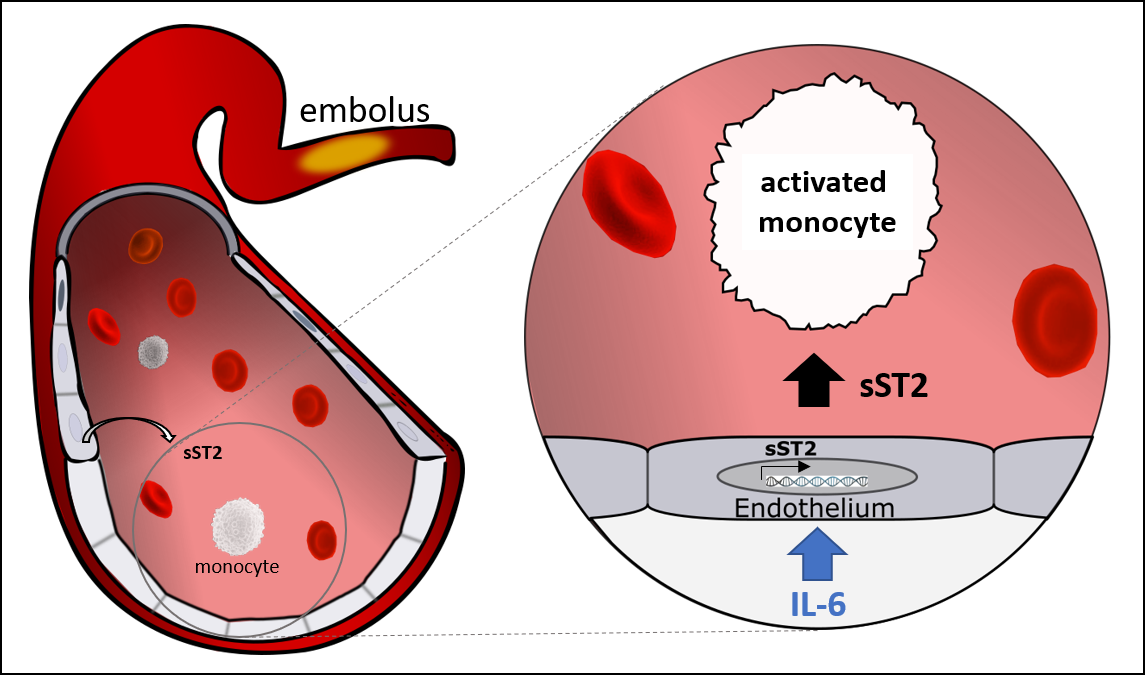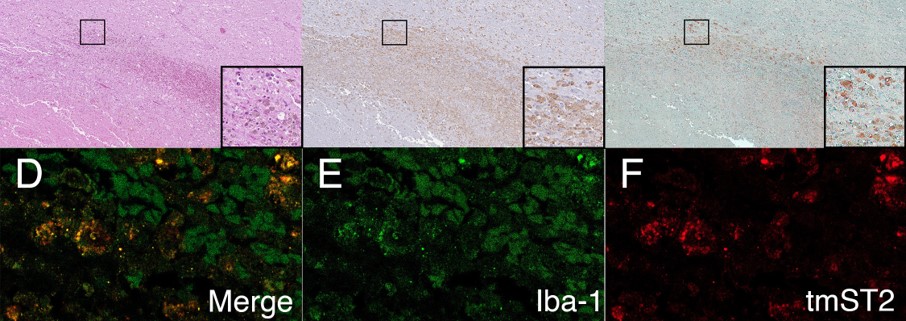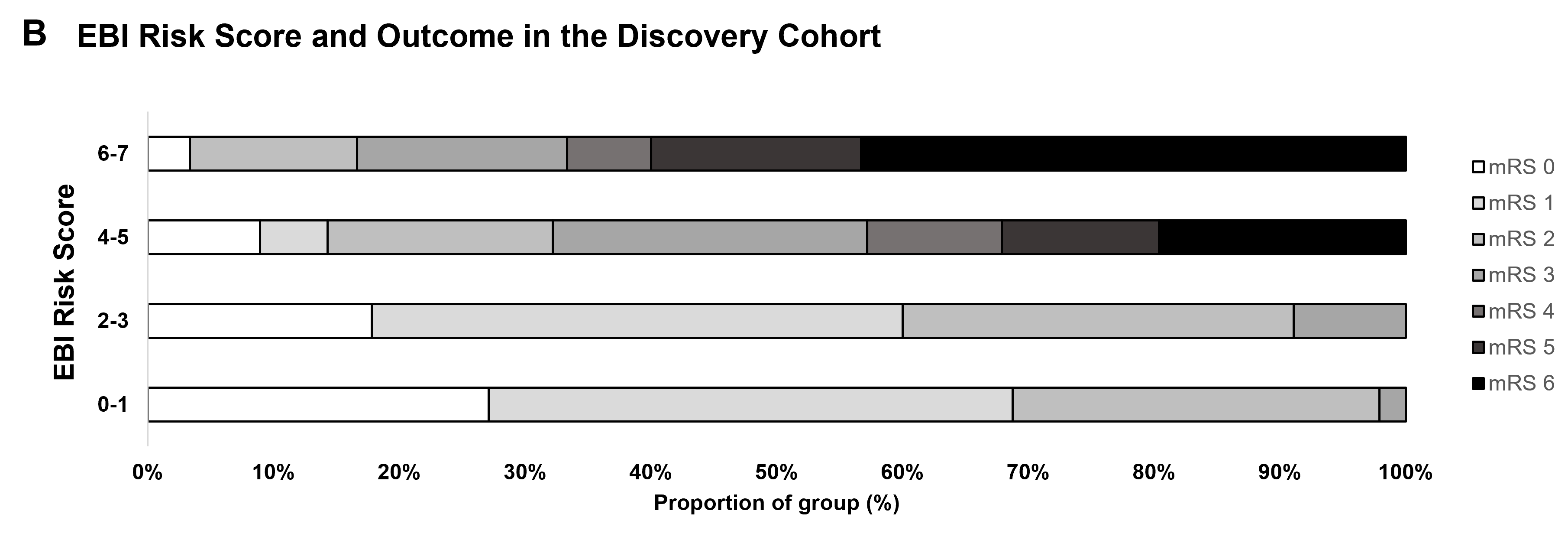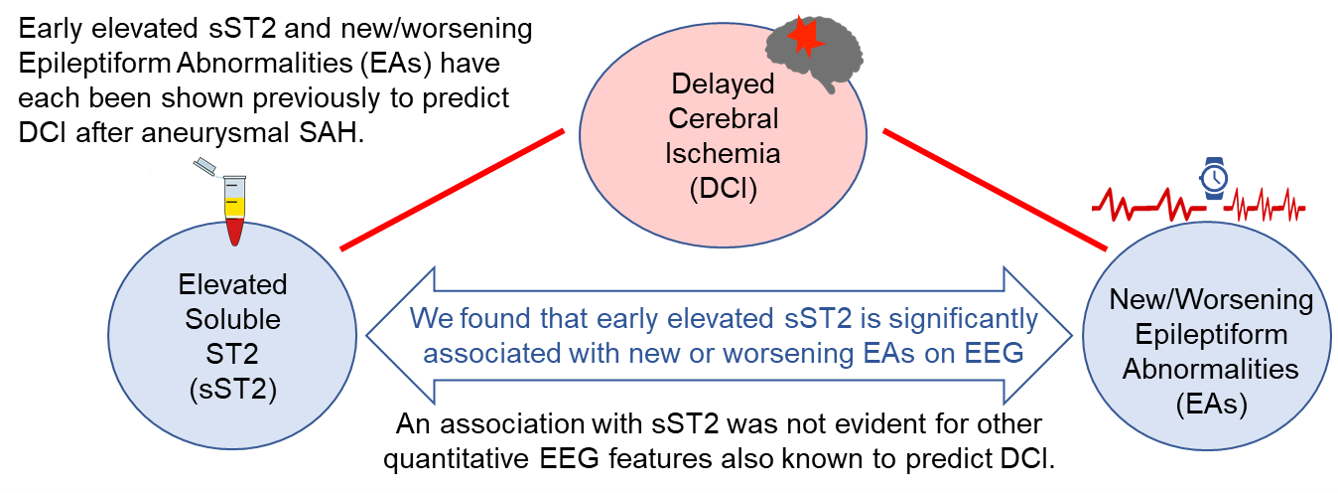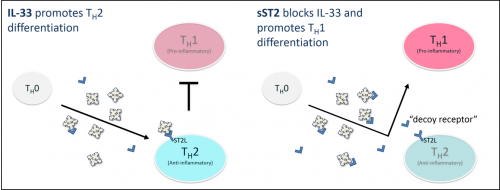Although inflammation after ischemic stroke is a well-described phenomenon and hypothesized to play a key role in secondary injury, the underlying mechanisms are not well understood. We have identified soluble ST2 as an inflammatory biomarker that is elevated following acute ischemic stroke. Our studies have highlighted that soluble ST2 predicts functional outcome, mortality and risk of hemorrhagic transformation, and these associations are independent from traditional clinical risk factors.
Soluble ST2 is a decoy receptor in the IL-33/ST2 pathway, which is a member of the Toll-like/Interleukin-1 receptor superfamily. Prior immunological studies of ST2 have shown that the soluble form antagonizes normal IL-33 signaling and alters the balance between pro-inflammatory versus reparative immune responses. Our laboratory is investigating how soluble ST2 may influence post-stroke innate inflammatory responses regulate the switch towards tissue repair.

